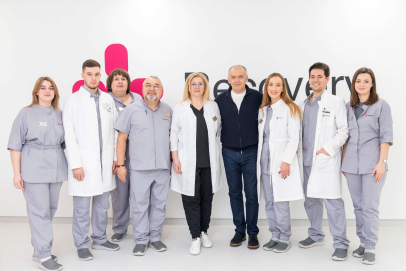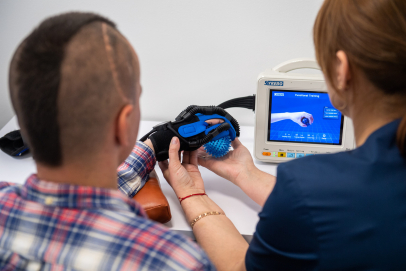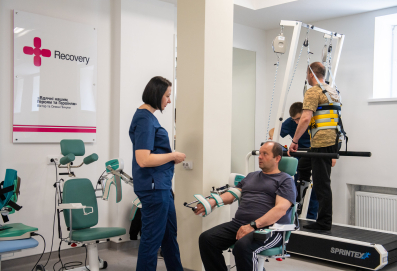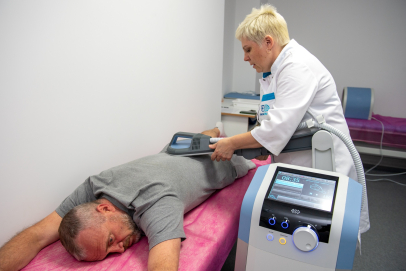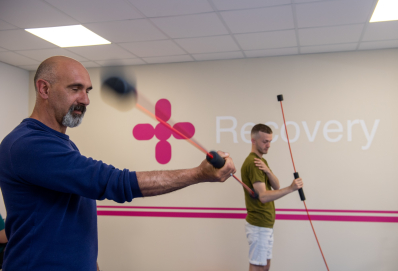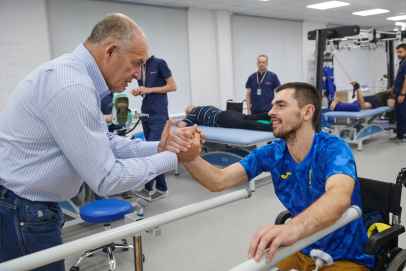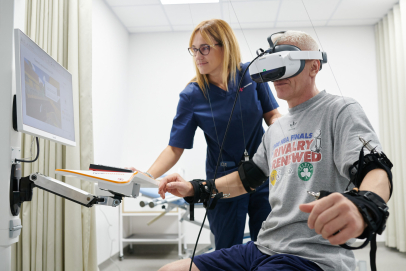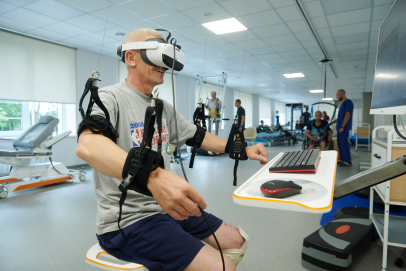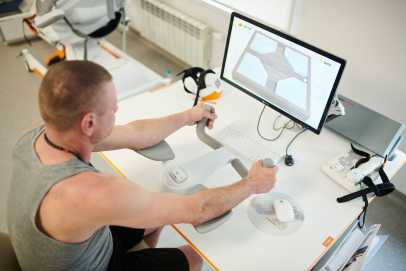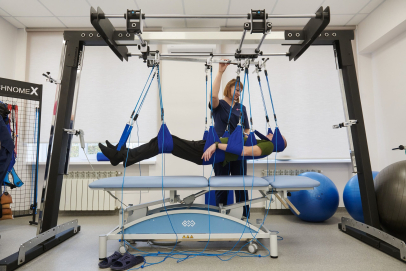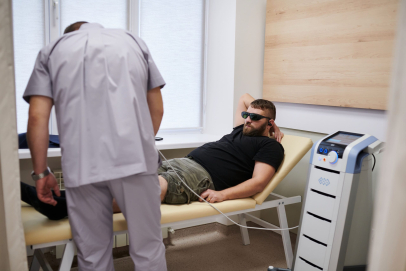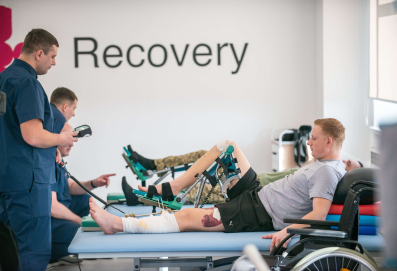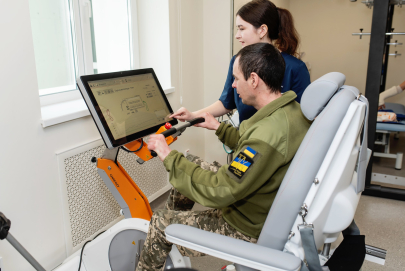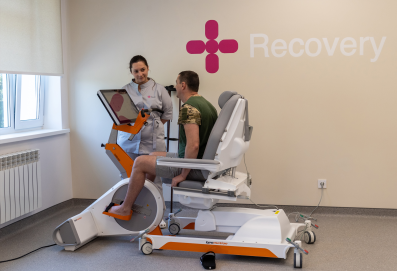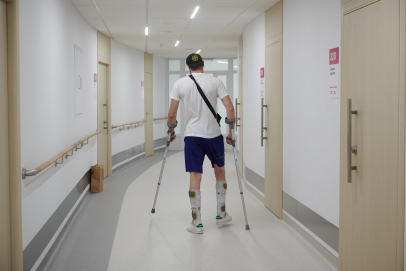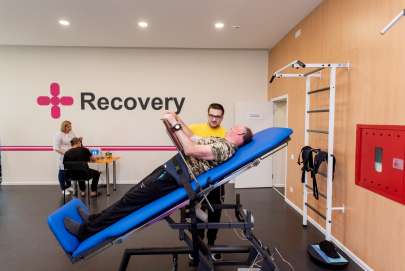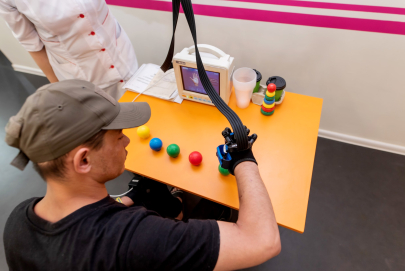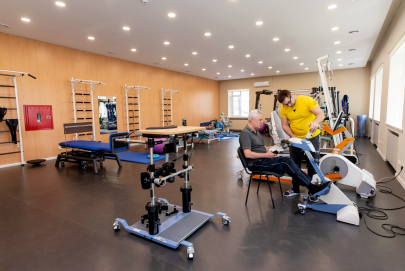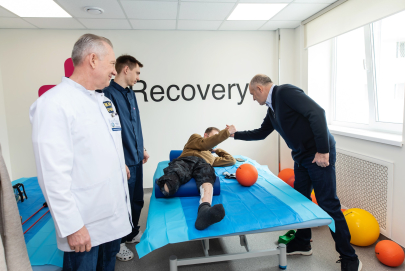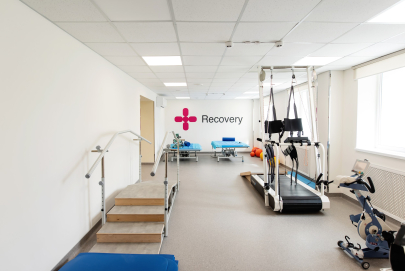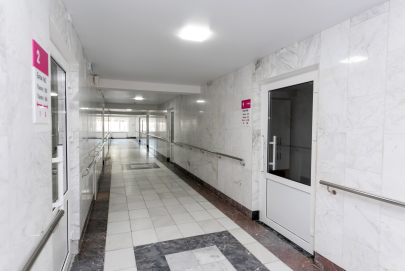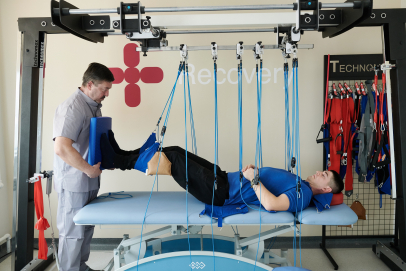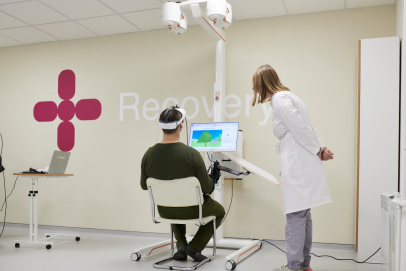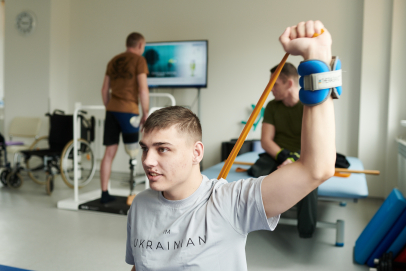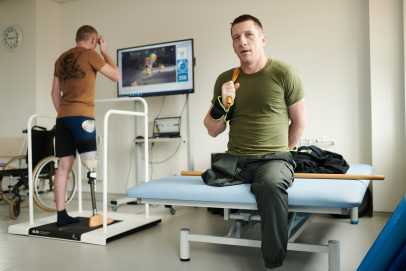Press about us
Grants: effective?
In the headline they play with words from the proverb "It's caviar to the general", turning it into "It's a grant to the general", meaning an inefficient use of something good (Translator's explanation).
Boris Rud', Irina Gassanova
Financial aid from the foreign governmental and private organizations to the NGOs of Ukraine is used in a very inefficient way and causes corruption in the third sector. Grant structures should be replaced with the foundations established by national business.
«When I had learned that the USAID was allocating 140 million dollars for the NGOs of Ukraine, I thought that I was just obliged to bite off at least something from this pie for my own affairs. And over a year I was able to get grants for various projects to the sum of $146 000, - one of the professional "grant-eater" shared his experience with the Expert. Over 8 years he has been working with foreign foundations. From the perspectives of Western foundations, he has an excellent profile: at start of the1990-s he participated in the students' rallies for Ukraine's independence, a member of varied NGOs of national-democratic nature, he attended many seminars on a civil society building in Ukraine that were conducted within a framework of experience interchange by the reps of foreign organizations. Finally, "the grant-eater" took a course on professional fundraisers' training - specialists on collecting money from foreign and Ukrainian donors for the NGOs' projects. At present, there are about one hundred managers of this kind in Ukraine.
Fundraisers, as a rule, have connections in all grand-making foundations operating in Ukraine, and they follow-up the information on new projects, and they know donors' psychology very well and can negotiate with them. They know a proper way of presenting the expense reports to them, and how to promote themselves and a donor. The NGO managers, where the fundraisers work, call themselves "Captain Grant's kids" hinting at their resemblance with the Lieutenant Schmidt's kids (crooks from famous novel who pretended to be kids of the legendary Schmidt and thus got money- Translator's remark). The same specialists implement the programs on rescuing rare animals, supervision over elections, gypsies' rights protection, and support to feminism in a Ukrainian village. The approach in the field is rather business-like - it doesn't matter what to do, unless it brings profit and does not violate the laws. Substantial money, for example, was got by the participants of the tiger protection project in the Carpathians. The donors did not know that the last tiger was walking there a thousand years ago, and the Ukrainian "grant-eaters", naturally, concealed this fact from them.
Wild Grant Capitalism
Financial aid from the foreign donors was given to Ukraine even before its independence proclamation, but the aid was not regular, and funds was mainly granted by private foundations, established by the Ukrainian Diaspora in the USA and Canada. One of the biggest grant structures launching their activity in our country was the international foundation "Renaissance" of the American billionaire George Soros, whose influence for the state authorities' building was huge in the first years of independence. His budget at that time totaled tens million dollars. The lion's share of this colossal resource was spent for the building of public and state institutions - some ministries, sectoral state administrations and social programs, for instance, setting up of business incubators for the discharged officers.
As the major goal of foreign donors then was the NGOs establishing and involvement in them as many as possible Ukrainians, the purposes and tasks of the NGOs were put aside.
In recollections of the pioneers of grant movement in Ukraine, at the initial stage the funds in cash was brought into the countries just in luggage, and then was distributed among personnel of the international foundations' representative offices and the Ukrainian joiners. One-day organizations were in widely used practice. Similar to the commercial banks in the 90-ies, which were set up with the only purpose to get a bank credit, the NGOs were registered for one project in order to get the western donors' money.
The foreign foundations' activity in Ukraine at the first stage resulted in creation of resource centers across all the regions of Ukraine, which were to set the NGO network nationwide. For this purpose they had donors' money and allocated small grants to the joiners-beginners. That's the way how a pool of "grant eaters' was formed, who keeping with themselves all the information on foreign foundations and contacts with them, have in fact built a monopoly for the grant business. Those very people developed schemes of donors' financial aids spending and expense report technologies that have been operating till today.
Business on a voluntary basis
«One should feel the foundation and its program and understand what they want and how you can make their project successful. Foreigners are looking for a history of success and I create it for them with their money', - one of the experience grant-managers confessed to The Expert. A grant recipient pursues a beneficiary's policy. In USA, where the practice of working with grants is very solid, there's a notion which is not even mentioned in Ukraine - "corporation of a mutual initiative". Corporation is not a net of enterprises under unified management, but a unity of interest. On this principle the entities with money most frequently render a financial aid to the NGOs, who are ready to use it in the activity of their interest. In western countries with a powerful public sector, interests of both sides should initially coincided, and a foundation on its own looks for appropriate (in term of tier activity) organizations.
In Ukraine, the situation is contrary: NGOs themselves design projects in line with a mission of this of that donor structure. ‘One of the problems in operating with grants is discrepancy between a goal of obtained aid and statutory goals of an organization. For example, an organization gets a grant for students' self-governing development. And in fact, with this very money, the seminars on democracy development are run, materials are published, or the materials published within a previous grant are just free disseminated. Such situation, where the organization's activity is targeted at donor's money spending under the mask of any projects, is typical for the whole civic sphere in Ukraine', - Aleksander Solontai, head of All-Ukrainian youth NGO "Regional initiatives foundation" told The Expert.
Schemes of no-purpose use of grant money are of all kinds - from saving of project personnel' salaries to fundraising from several donors for the same project.
Expense report technology is a specific direction in the work of each NGO, and it is a specific manager, who is in charge solely of grant applications and expense reports. The main form of the report is a qualitatively prepared presentation of work done. Done well, correctly and graphically impressive, the report (with photos, video and materials on electronic transfer systems) solves easily the problem of responsibility for spending funds in the eyes of central structures of foundations in Washington, Brussels and Strasburg. Donor foundations very seldom check the implemented projects outcomes in the field. Even if it somewhat occurs, the reporting is performed in the best traditions of Soviet state control: for an inspector's arrival, the school hall with gathered kids and parents are quickly cleaned. Kids' amateur performance is urgently arranged, the pictures of winners of supposedly competition, which was conducted with the donor's money, are hung on the walls. Activity of such organization resembles the squirrel's run in the wheel. Sometimes they have to borrow money from the other refunded project for the sake of a required report. "The funds from abroad, from governmental and intergovernmental foundations are very difficult - their spending is required a detailed bureaucratic accountability. But this kind of foundations allocate rather essential amount of funds, which one tries to steal on the account of remaining balance. It's not a rare case, when the grant recipients build a successful business with this money. In many cases, we deal with a banal conversation of funds. For example, polygraph products were reported to be disseminated, while the foundation sent only a signal copy and cashed out the money', - Aleksander Lyal'ka, president of "Youth against corruption" organization informed The Expert.
On the top of it, a major part of grants is won by the big US consulting groups, as a rule. By assessment of the "Europe XXI" foundation experts, these are the so-called ‘beltway bandits'. Such groups are now forming a local government in Ukraine, and when the grant resources are exhausted, they will go to reform the agriculture in Somali or the educational system in Afghanistan. Universality of foreign experts and managers undermines trust to many of them. "I may give you an example. There've been arrived the experts with scientific degrees and professor titles from the western organizations to assist in implementing of the project targeted at designing of a training methodology for Ukrainian civil servants of 1st, 2ne, 3d and 4th ranks for the work with civil society structures. But they delivered the lectures on the EU structure and history, functions of its bodies that had no relations to the project. It was suggested to prepare guidance materials and training manuals to Ukrainian experts. But payment to them was several times lower, - Valeriy Kopeika, director of the European Studies Center, told The Expert. Sometimes, western countries solve the problem of their civil servants' employment by sending them on mission to developing countries as experts, consultants and advisors of every sort and kind.
The activity of experts from the international donor foundations is often reduced to the sale of their standard products: the IMF always starts refurbishing the treasury systems; the DFDI sets up the civil service departments, the USAID advances all over the world its idea of issuing of municipal loan bonds. The IMF specialists in the field of microeconomics call the government for state expenses reduction, while its sectoral departments lend money to the ministries for these expenses' increase. The sense of this whole activity is in creating to themselves of comfortable conditions for working in other countries. And it does not matter how it will impact those countries. The worst results occur when they make attempts to impose standard measures and policy borrowed from their home experience, or from a mix of different countries' experience.
The second will help the first
The situation in the grant market is changing. Internet development and accessibility of information on international donor foundations by 2000 have destroyed the monopoly on this market, which was built in the 90-ies by the resource centers who gave a birth to a tough competition. "Today one could get a big grant only after passing some stages of work with foundations' mini-grants', - Andrey Ghevko, member of the "Opora" NGO, explained to The Expert. I'm from Ternopol, there I joined the youth organization "Plast", which is dealing with the kids' upbringing by the scouts methods. Since 2002 we've started being interested in getting external financial assistance. In Ternopol, as in other regions, there‘ve been run the seminars on leadership, where the joiners study technologies of sponsors and grant-makers' involvement. In our city, these seminars were conducted with the money of the Polish Foundation of Democracy and Education. We were suggested to apply for a mini-grant ($600), we designed a project of a 4-days seminar on scouts' methods for parents and teachers. Then, on the US Embassy's web-site, we found an information on democratic initiatives program which included the backing of the projects to the sum of 15 000 dollars for 1, 5 year. We prepared a project for $10 000. Had obtained this sum, we conducted two sessions in the camps and set up 4 cells of our organization in the region'.
This is a typical example of a correct approach to s serious grant. However, the civil sector is still designed in line with interests of foreign governmental and private donor foundations. For this reason, there appears a conception of reforms for the sake of reform. The western foundations implement in Ukraine the models, which are not adjusted to our realities, and were already failed in other countries. Thus, as economic consultants, various international organizations attract the specialists who worked in Argentine, where the reforms under their coordination caused a serious crisis in the country. "Almost all international donors working in Ukraine refused us. A foreign foundation will never start supporting the programs aimed at real improvement of economic situation or state governing', - Elena Tkach, executive director of the Council of competitive capacity of Ukraine said. This NGO was established in spring of last year with a view of advancing to the authority organs the program of an American economist Michael Porter on economy's competitive capacity enhance. His methods were successfully applied in Ireland and Singapore. The Trustee board of this organization comprised of the scientist-economists, as well as of Vitaliy Gaiduk, president of the ISD consortium, Victor Kapustin, chairman of the UkrSimbank board, Yuriy Miroshnikov, president of "International airlines of Ukraine" company, Yaroslav Nikitin, chairman of the board of Kakhovskiy welding works and other representatives of the nation's big business.
With all this going on, the state itself still continues working with the foreign technical assistance by the schemes of the NGOs' grants. According to The Expert's information, starting from 2004, the funds for the NATO popularization program have been injected into Ukraine via several tranches. With this money one planned to set up the information centers to work with the population. Still, for this period no large-scale propagandistic campaign has been carried out in the country, and the rating of support to the NATO declined from 30% to 18%.
Therefore, the sole reliable source of support to formation of a civil society in Ukraine as a basis of the country's social capital is its large and medium national business.
In recent years, the Ukrainian business-groups brisk up their charitable work. After the Orange team came to power at the beginning of 2005, the representative of big business realized that it would be superfluous to enlist the support of their activity.
There have been established the foundations within the Financial Industrial Groups (FIG) for diverse projects: from immortalizing of fighters for Ukraine's independence to the business education development. One of the first, who took this way, was Interpipe Corporation. Victor Pinchuk wants to change the country and to make it comfortable to live in. He has children, friends, he understands how important for Ukrainians to modernize primarily themselves. One should not expect this from the government though. That is why he intends to use his own financial resource and energy for improving his country. In the West such practice has been widely used by reps of big business. Now it has also appeared in Ukraine', - Thomas Eymond-Laritaz, president of the Victor Pinchuk Foundation, said. The ISD, SKM and other Ukrainian FIGs are actively working now in the same direction. They regard the NGO as potentially powerful political and economic resource, as a tool for improvement of the company's image. Eventually, the understanding of social responsibility of business is also coming.
Of course, Ukraine should be grateful to the foreign partners who pay big money for building of a market economy here, as well as democracy and a civil society. Still, it is a particularly home affair.

































